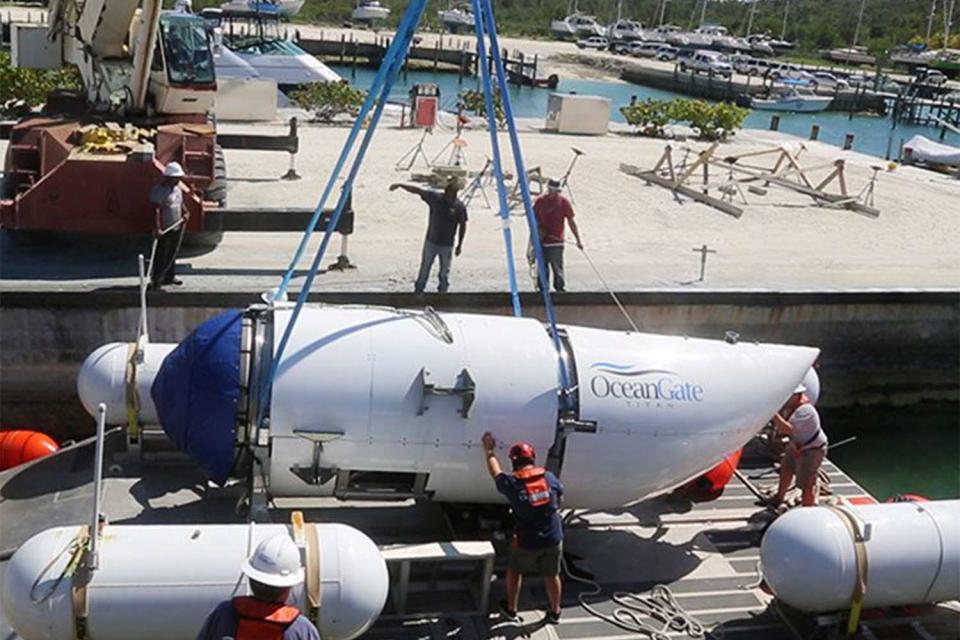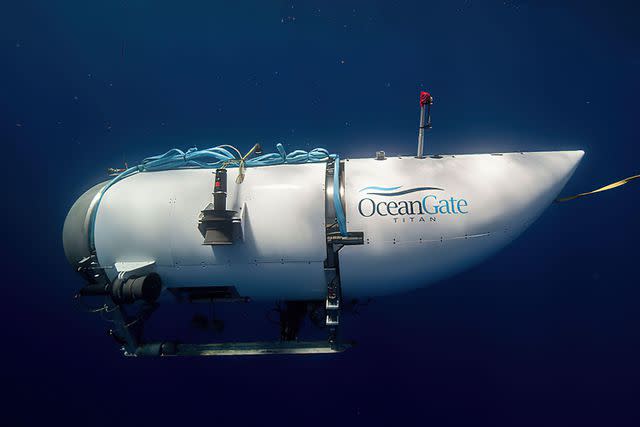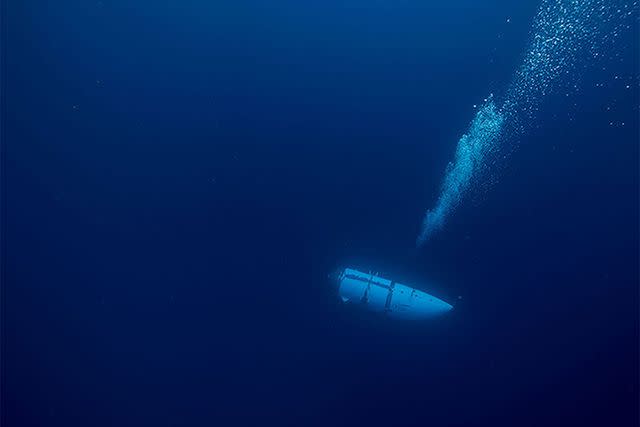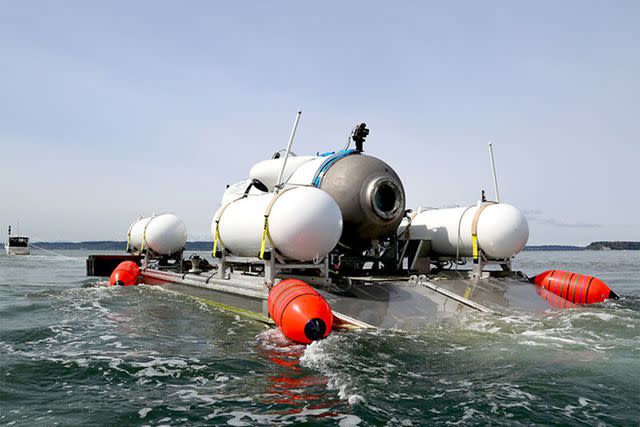Doctor Has Faith in 'Very Smart People' Aboard Missing 'Titanic' Sub: 'They'll Be Doing Their Best' (Exclusive)
“I think it's not time to give up. I think they should keep going," Dr. Kenneth LeDez tells PEOPLE

EyePress News/Shutterstock
Diving and hyperbaric medicine specialist Dr. Kenneth LeDez thinks the rescue teams searching for the five passengers aboard the missing Titanic-seeking ship “should keep going" because “it’s not time to give up.”
PEOPLE spoke with the associate professor in the faculty of medicine and medical director of hyperbaric medicine service at the Memorial University of Newfoundland about the severe health conditions the passengers are facing on the Titan submersible that went missing on Sunday.
“If they're alive, if the structure of the submersible itself is intact, then the conditions are certainly very treacherous and frightening for the occupants,” LeDez, 65, tells PEOPLE.

Alamy Stock Photo
Related: Everything to Know About the 'Titanic'-Bound Sub That Has Gone Missing
“Their supplies of everything are dwindling by now,” he says. “But these are very, very accomplished, very, very smart people who will be doing everything they can to survive in the hope of external rescue.”
"For instance, if they're entangled with something on the bottom and haven't been able to release their weights to ascend, they're very smart and they'll be doing their best to stay calm," he continued.
“But the problems they've got, the three main issues are that gradually the oxygen levels are going to go down, so that means hypoxia, a low oxygen,” LeDez notes.
“If they lose power or exhaust the CO2 scrubbers, the carbon dioxide is going to build up inside the vessel over time,” he lists as the second challenge.
“The third one is temperature, hypothermia, because the ocean is very cold down there, 0 degrees Celsius or freezing level in Fahrenheit, and so they're going to be getting very cold,” adds the anesthesiologist.
LeDez says the passengers’ body temperature and oxygen levels may partly “depend on whether they still have electric power.”
Related: Who Is on the Missing 'Titanic'-Bound Sub? All About the Passengers

Ocean Gate/Handout/Anadolu Agency/Getty
“As oxygen level decreases, that can lead to sudden unconsciousness without warning,” he explains. “Also, as their body temperature gets lower, the hypothermia will set in and they can lose consciousness and the ability to use their muscles and lose all their strength.”
The professor notes: “As the carbon dioxide level builds up, then what happens is that it stimulates your breathing, so you start to breathe faster and it also increases your heart rate. So because of that, it can cause anxiety and distress.”
“But as the carbon dioxide level builds up even further, then it becomes sedative,” adds the specialist.
“So, certainly very frightening circumstances,” he acknowledges. “But these are very accomplished people, so I’m sure they're doing their very best to stay calm and to not exercise more than they have to because they know that'll use up oxygen and produce more carbon dioxide.”
“They're going to get increasingly unwell, but they could still survive for a significant period of time in adverse conditions, but they'll be less able to help themselves,” adds LeDez.
However, LeDez urges: “That doesn't mean, in my view, anyway, that they should abandon the efforts to try to get them out because people have survived lots of adverse circumstances in the past.”
As for food and water, the reported lack thereof is not the “number one [issue] because people have lasted longer.”
“There will be quite a lot of humidity inside that small space and they might even be able to get some water just from the walls of the vessel a little bit,” LeDez tells PEOPLE.
“Not enough to keep them alive for weeks, but it may be small amounts that they might be able to gather from inside the vessel. It's possible."
Related: What Could Have Happened to the Missing 'Titan' Sub? Experts Share 5 Possible Outcomes

Ocean Gate/Handout/Anadolu Agency/Getty
Related: Crews Remain Hopeful During Hunt for Missing ‘Titan’ Sub: ‘This Is a Search and Rescue Mission'
“The problem is, of course, that the depths there are so extreme that there's very little equipment anywhere in the world that can go to that," LeDez says. "And so it's a race against time trying to see if they can first find it.”
Continuing: “I think they have enough equipment for that, to find it if it's possible. But to have something that can actually go down, I think there's very few in the world, and I'm sure they're making efforts to get that there and equipment on site."
If the passengers are found, LeDez says “there’s a good chance that they’re going to need critical care,” which includes warming up in an intensive care unit.
Never miss a story — sign up for PEOPLE's free daily newsletter to stay up-to-date on the best of what PEOPLE has to offer, from juicy celebrity news to compelling human interest stories.
He also explains how the individuals "could have cardiovascular and respiratory problems," in addition to an urgent need for rehydration and intravenous fluids.
“And if they're unconscious and lying on a hard surface for an extended period of time, they could get skin ulcers, pressure wounds, and you can get damage to your muscle,” he notes.
“If you're unconscious lying for a long period of time on a hard surface, you can get muscle damage and that can lead to a condition called rhabdomyolysis, and that can lead to kidney problems, as can profound dehydration. So, they're going to need intensive care,” he explains.
Despite the reported severe health conditions the passengers may experience if they emerge above the surface, LeDez tells PEOPLE, “I think it's not time to give up."
"They need to keep going because even as the conditions deteriorate," he explains, "[It] doesn't mean that suddenly that it's not worth trying."
For more People news, make sure to sign up for our newsletter!
Read the original article on People.

